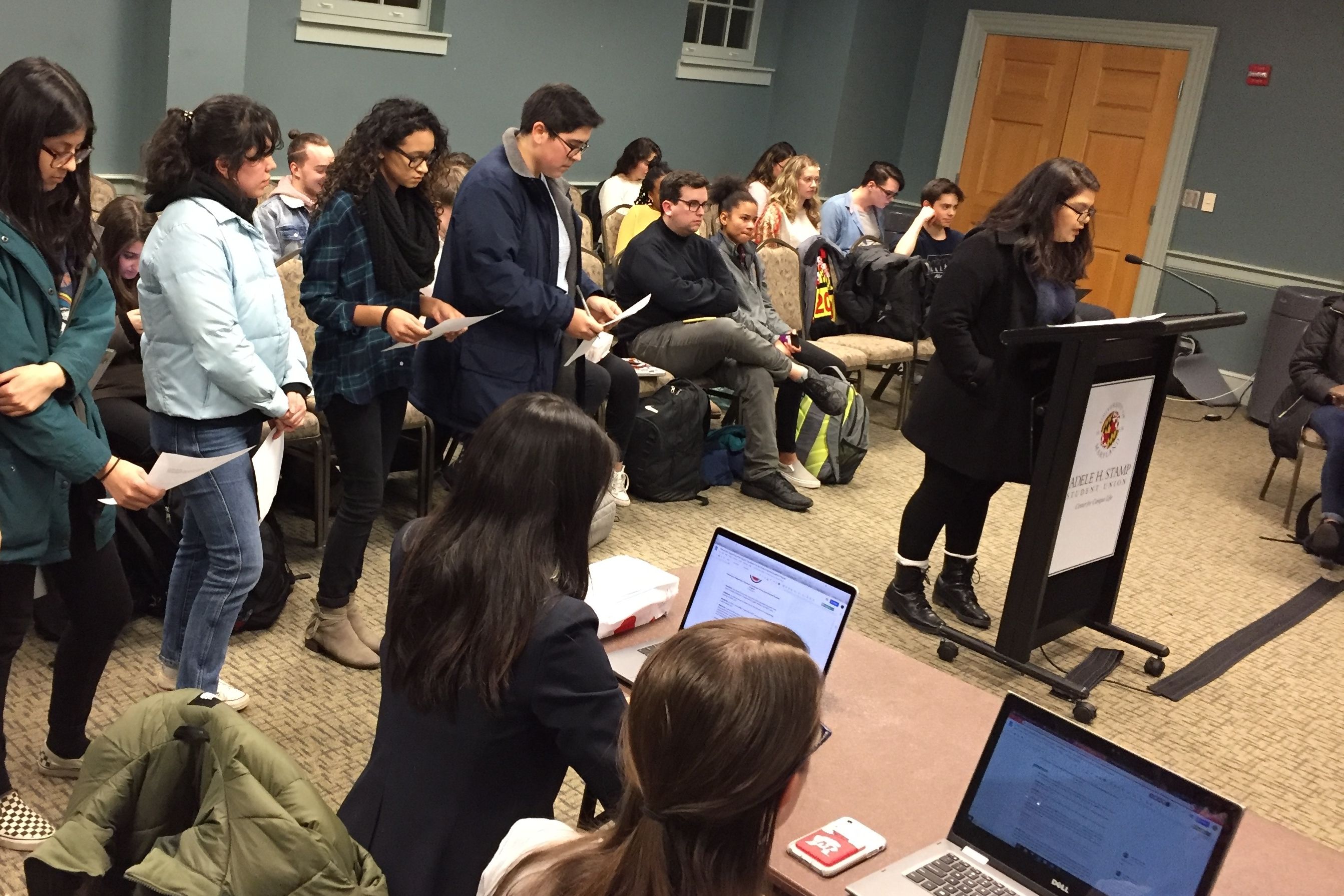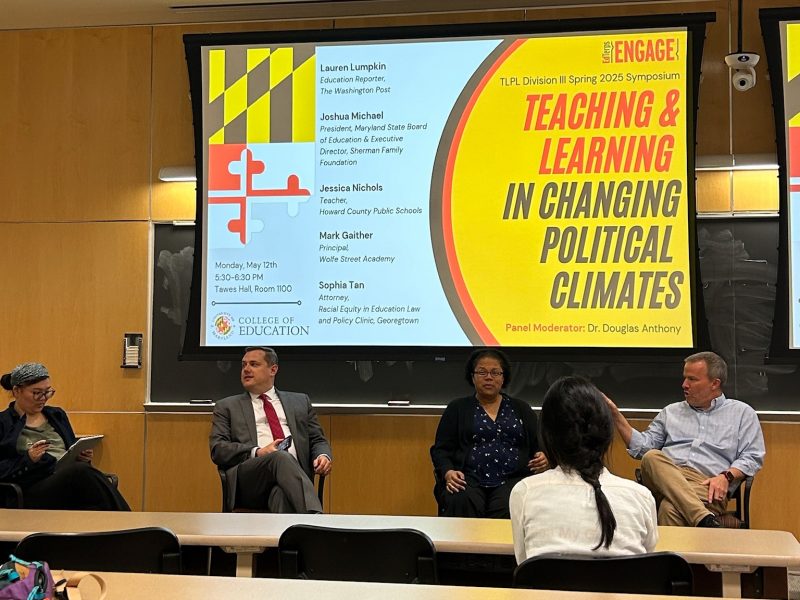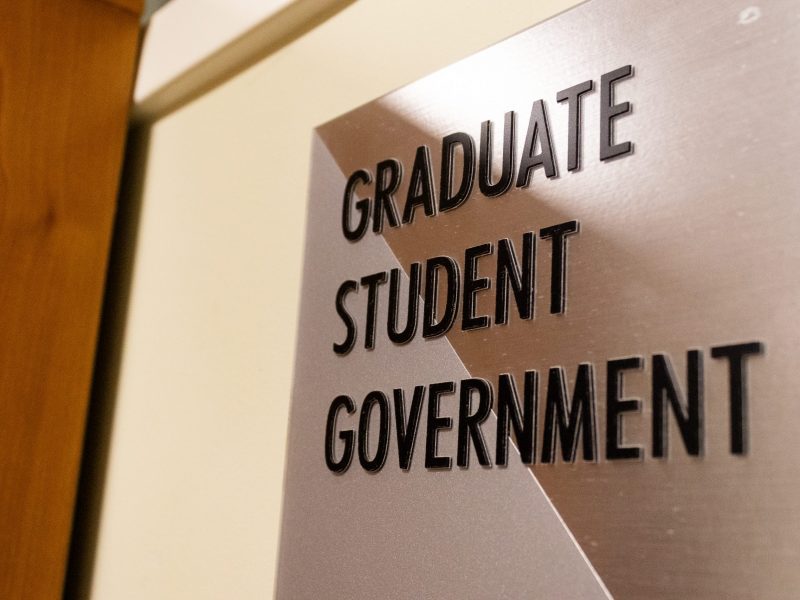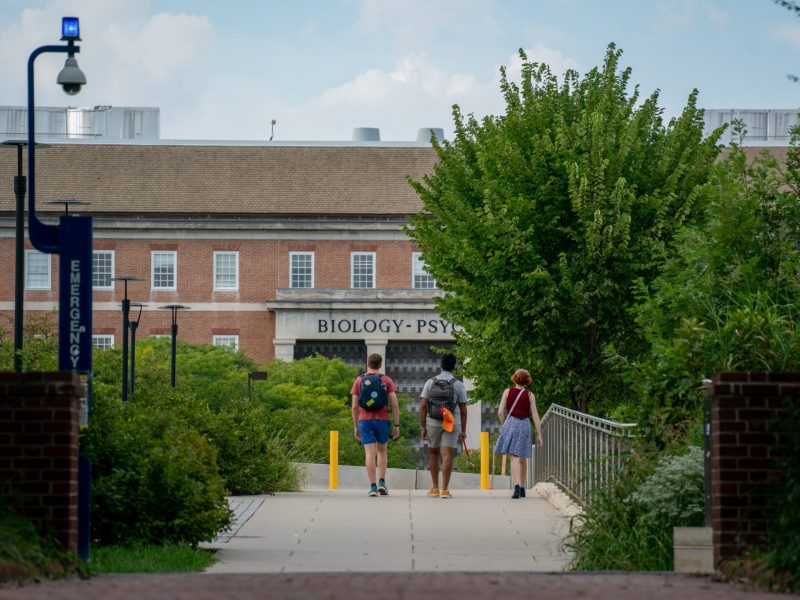The University of Maryland SGA voted Wednesday to support making the school’s undocumented student coordinator a permanent position.
The vote passed 34-0, with one abstention.
Laura Bohorquez Garcia, who has held the role since fall 2017, has a contract that expires at the end of the semester. The university has not yet told her if her contract will be renewed, leaving the future of this position uncertain.
Candela Cerpa, the Student Government Association’s behavioral and social sciences representative, sponsored the bill to bring light to the issue.
“At the end of February, we decided we weren’t getting anywhere with this, so let’s go public with it,” said Cerpa, who is also the external affairs vice president of Political Latinxs United for Movement and Action in Society. “The coordinator wanted to try to fix it behind the scenes, but since that didn’t work, here we are.”
The coordinator’s role is to provide resources and guidance to the approximately 100 undocumented students at this university, including informing them of their current legal status, providing resources for financial guidance and offering general emotional support.
“It influences the way I do my work, if the position stays or it doesn’t,” Bohorquez Garcia said in November. “I need to know how to prepare to help students.”
[Read more: UMD’s undocumented student coordinator sees more requests after Trump’s DACA announcement]
PLUMAS members and students who have benefited from Bohorquez Garcia’s guidance spoke to SGA legislators at the meeting about their experiences and why it is so important to them that this position becomes a permanent fixture at this university.
“I really love all the effort she puts into this, and she cares so much about all the students she comes in contact with,” Cerpa said. “She goes above and beyond for every single one of them.”
PLUMAS President Blanca Arriola Palma describes Bohorquez Garcia as a “bridge” between the university and undocumented students, allowing them to remain anonymous.
“I can’t imagine doing anything that PLUMAS does without her,” the senior government and politics major said. “She truly is a big support system for us as a student organization.”
Cerpa, too, acknowledged Bohorquez Garcia’s influence.
“Having one person centralized with all the knowledge, that’s keeping up with the news, knowing exactly who to contact, knowing what kind of advice to give them is really important,” Cerpa said. “If they take that away, I feel like it would detrimental for the students’ ability to academically succeed because they will be more stressed.”
The position was created in 2017 after ProtectUMD, a coalition of student activist groups, submitted a list of 64 demands to the university administration following a walkout to protect the rights of minority students in the wake of Donald Trump’s election. On the list was the creation of “a full-time undocumented student coordinator to advocate for, advise, represent, and protect undocumented and DACAmented students.”
[Read more: University of Maryland will now have an undocumented student coordinator]
In September 2017, the Trump administration announced that the Deferred Action for Childhood Arrivals program — a policy that protects undocumented immigrants who came to the U.S. as minors — would end six months later. Since then, some U.S. district courts have allowed renewals, and the Supreme Court has yet to take a firm stance on the issue — leaving its provisions in place for now.
“I commend the university for listening to students and creating this position,” Cerpa said. “It came because students demanded it, and it’s going to stay because students pushed for it.”
Arriola Palma said PLUMAS has discussed the contract extension with administrators since December and hopes SGA support displays the role’s necessity.
“If [administrators] see the support from more departments, more bodies on campus, will they reconsider changing from just giving an extension now to making the position permanent?” she said.
Staff writer Arya Hodjat contributed to this report.



